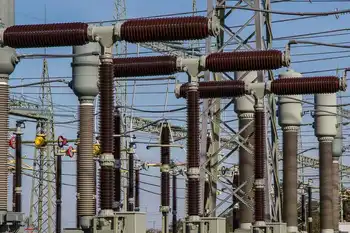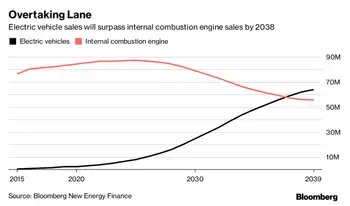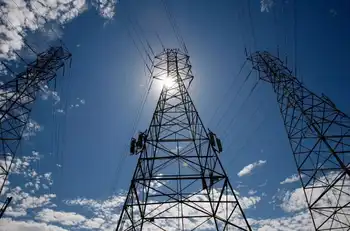ZHANJIANG, China -- - China's Boom Adds to Global Warming Problem
ZHANJIANG, China -- China's rapid economic growth is producing a surge in emissions of greenhouse gases that threatens international efforts to curb global warming, as Chinese power plants burn ever more coal while car sales soar.
Until the last few months, many energy experts and environmentalists said, they had hoped that China's contribution to global warming would be limited. Its state-owned enterprises have become more efficient in their energy use as they compete in an increasingly capitalist economy, and until recently official Chinese statistics had been showing a steep drop in coal production and consumption.
But new figures from Chinese government agencies confirm what energy industry executives had suspected: that coal use has actually been climbing faster in China than practically anywhere else in the world.
To the extent that global warming is caused by humanity, as many scientists believe, this is a serious problem because burning coal at a power plant releases more greenhouse gases than using oil or natural gas to generate the same amount of electricity.
China's rising energy consumption complicates diplomatic efforts to limit emissions of global warming gases. The International Energy Agency in Paris predicts that the increase in greenhouse gas emissions from 2000 to 2030 in China alone will nearly equal the increase from the entire industrialized world.
China is the world's second largest emitter of such gases, after the United States. But China's per-person energy use and greenhouse gas emissions remain far below levels found in richer countries. The emissions are, for example, roughly one-eighth of those per capita in the United States.
As a developing country, China is exempt from the Kyoto Protocol, the pending international agreement to limit emissions of greenhouse gases. When President Bush rejected the Kyoto Protocol two years ago, he portrayed China's exemption as a serious flaw. The protocol has been embraced by most other big nations, however, and only requires ratification by Russia to take effect.
Another developing country exempt from the protocol, India, is also showing strong growth in emissions as its economy prospers. General Motors predicts that China will account for 18 percent of the world's growth in new car sales from 2002 through 2012; the United States will be responsible for 11 percent, and India 9 percent.
Official Chinese statistics had shown a decline in coal production and consumption in the late 1990's, even as the economy was growing 8 percent a year. But many Western and Chinese researchers have become suspicious of that drop over the last several years.
They point out that the decline assumed that local governments had followed Beijing's instructions to close 47,000 small, unsafe mines producing low-grade coal and many heavily polluting small power plants. Yet researchers who visited mines and power plants found that they often remained open, with the output not being reported to Beijing because local administrators feared an outcry if they shut down important employers.
China's National Bureau of Statistics has not revised its coal figures for the late 1990's, but its latest data show that coal consumption jumped 7.6 percent last year. A Chinese official said the bureau was likely to report a similar increase for this year. Even those figures may be low: Chinese coal industry officials have estimated that coal consumption may be rising more than 10 percent a year.
China is now the world's largest coal consumer, and its power plants are burning coal faster than its aging railroads can deliver it from domestic mines, most of which are in the north. So the country is importing coal from Australia. This steamy city of 640,000, with its deep-water port, is the main receiving point in southern China.
As fishermen in wooden boats brought conical wicker baskets full of silvery, sardine-size fish ashore at dawn on a recent morning, the sun began illuminating an enormous, coal-fired power plant with a big freighter from Australia tied up next to it.
Related News

Big prizes awarded to European electricity prediction specialists
LONDON - Three European prediction specialists have won prizes worth €2 million for developing the most accurate predictions of electricity flow through a grid
The three winners of the Big Data Technologies Horizon Prize received their awards at a ceremony on 12th November in Austria.
The first prize of €1.2 million went to Professor José Vilar from Spain, while Belgians Sofie Verrewaere and Yann-Aël Le Borgne came in joint second place and won €400,000 each.
The challenge was open to individuals groups and organisations from countries taking part in the EU’s research and innovation programme, Horizon 2020.
Carlos Moedas, Commissioner for Research, Science and…




